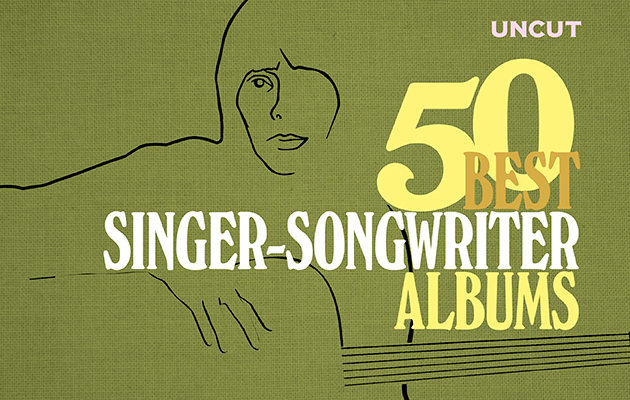Back in our December 2013 issue (Take 199), the Uncut team took on the emotional task of compiling a Top 50 of the most powerful, confessional singer-songwriter albums. From Tim Hardin 1 to Once I Was An Eagle (in chronological order, that is)... are you ready to be heartbroken? ____________________...
21 Al Green
The Belle Album
(Hi Records, 1977)
The turning point in Green’s career was arguably three years before this album appeared, when ex-girlfriend Mary Woodson White threw boiling grits over the singer while he sat in the bath, then killed herself with a handgun. He subsequently became less interested in the seductive, sexually charged soul that had made him a star, more enthusiastically pursued gospel music and was ordained as a minister – but The Belle Album, his first without the guiding hand of long-time producer Willie Mitchell, is the sound of a man torn between the saintly and the secular; “It’s you that I want, but it’s Him that I need”, he sings on the title track. Ultimately, religious faith triumphs over sex, Green more determinedly following a righteous path on “Loving You” and “Chariots Of Fire”.
____________________________
22 Marvin Gaye
Here, My Dear
(Tamla Motown, 1978)
Surely the only album with liner notes written by an attorney, Here, My Dear is a divorce set to music, with all the bitterness, recrimination and sorrow of a 16-year marriage ending. The record is part of the separation, its royalties going, by court order, to Gaye’s ex, Anna Gordy, as part of a $600,000 settlement (Gaye’s fortunes had been squandered, not least on a gargantuan coke habit). Gaye had intended to make a “bad, lazy” album but artistry prevailed, as he obsessively “sang his heart out” on double- and triple-tracked vocals. Meandering and unstructured, Here, My Dear is nonetheless affecting, its allegations of adultery and greed balanced by sadness in songs like “I Met A Little Girl” and “When Did You Stop Loving Me”, while “You Can Leave But It’s Going To Cost You” is a sentiment that echoes through many a divorce.
____________________________
23 Bryan Ferry
The Bride Stripped Bare
(EG Records, 1978)
https://www.youtube.com/watch?v=18Haa99AGE4
Taking its title from the Marcel Duchamp painting The Bride Stripped Bare By Her Bachelors, Even, with its subtext of masculine-feminine relationships, Ferry’s fifth solo release was his first since model Jerry Hall left him to take up with Mick Jagger. He picks over the bones of the break-up on the baroque, mournful “When She Walks In The Room” (“All your life you were taught to believe/Then a moment of truth, you’re deceived”) and the country rock of “Can’t Let Go”, and while no stranger to cover versions, the songs of others Ferry opts for here are arguably more pointedly autobiographical, dissections of the end of a romance (The Velvet Underground’s “What Goes On”, Otis Redding’s “That’s How Strong My Love Is”).
____________________________
24 John Martyn
Grace & Danger
(Island, 1980)
Following the decision of his wife Beverley to finally extricate herself from their ten-year marriage, John Martyn recorded this elegantly anguished confessional. The slick synths, fretless bass burbles and Phil Collins’ jazzy drums cannot temper the emotional clout of the songs here. Following the self-explanatory “Baby Please Come Home”, the pleading “Hurt In Your Heart” and “Save Some (For Me)”, the deceptively soulful “Our Love” makes for an unambiguous kiss-off. Island boss Chris Blackwell delayed its release for a year because he felt it was too depressing. Martyn later called it “direct communication of emotion. I don’t give a damn how sad it makes you feel.”
____________________________
25 Pete Townshend
Empty Glass
(Atco, 1980)
The few years leading up to Empty Glass had not been kind to Pete Townshend. Keith Moon had died in 1978, while his marriage was failing and he was struggling with alcoholism and drug abuse as well as his commitments with The Who. The result was an album filled with emotional extremes: anger, tenderness and despair chief among them. “I Am An Animal” found Townshend at his most openly confessional, intoning over acoustic guitar lines: “I’m looking back and I can’t see the past/Anymore, so hazy/I’m on a track and I’m travelling so fast/Oh for sure I’m crazy”. The title track, meanwhile, found Townshend examining his own place in a world post-punk: “My life’s a mess, I wait for you to pass/I stand here at the bar, I hold an empty glass”.



